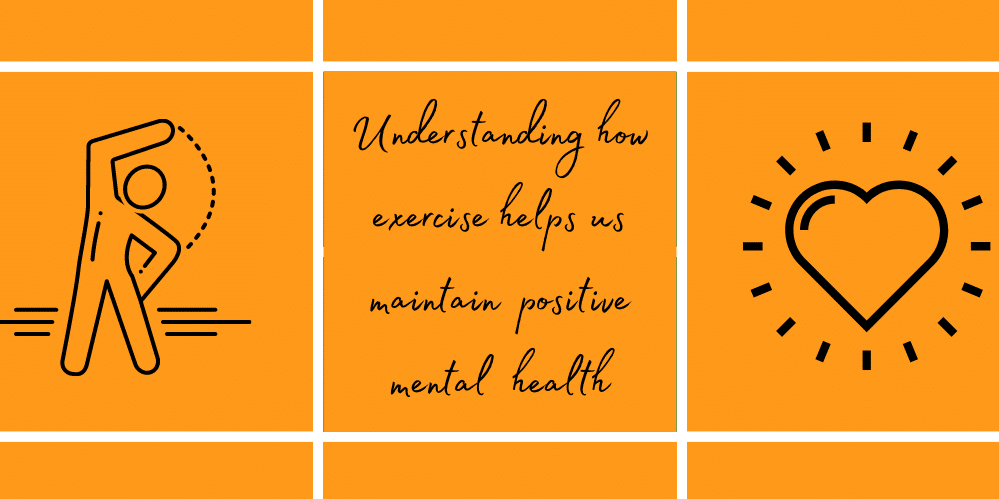Paired with good nutrition, we know exercise (physical activity) is a key factor in maintaining positive mental health and wellbeing. But what is it about exercise that directly benefits our mental health?
When we exercise, blood flow and nerve connections increase to our brain, and our brain stimulates happy chemicals like endorphins and serotonin. As a result, we experience:
- Reduced depression and anxiety symptoms
- Improved mood
- Clarity of thought and attention
- Increased productivity
- Improved memory
- Better sleep quality
- Reduction in risk of serious illnesses including diabetes, cancer, heart disease and dementia.
Exercise also often brings opportunities to socialise, reducing feelings of loneliness and isolation.
Science behind exercise and mood
When we exercise, we release dozens of endorphins (anti-stress hormones) which have different effects on the brain. These, along with dopamine, serotonin, and oxytocin, are often affectionately known as “happy hormones”. Here’s how they work:
- Norepinephrine wakes up the brain and gets it going
- Dopamine, associated with anticipation of pleasure, gets a boost and helps to improve your mood and motivation
- Serotonin affects the limbic system and how we perceive and regulate emotions
- BDNF (brain-derived neurotropic factor) generates and protects our brains nerve cells against cortisol
- Cortisol (stress hormone) actually increases during activity, but then reduces later. Think of this effect like your heart rate. Yes – it increases during exercise, but the more bouts of activity you do, the more efficient the system becomes, and the less “beats” (or cortisol) you produce at rest.
- Exercise, as opposed to incidental physical activity, also provides some wide ranging social and psychological benefits. It can facilitate better social interactions, sense of worth, achievement and routine – all of which can play a big role in positive mental health and wellbeing.
Exercise suggestions
- Do something you enjoy. This may be the biggest factor in your ability to get going and keep going.
- Start small and build up. Don’t expect to run a marathon straight away!
- Plan and journal your exercise schedule. The best exercise is the one that’s done, so try and create a routine that you can stick to. It’s also helpful to have a ‘plan B’, for the days or weeks that life just does not go to plan.
- Consider exercising with friends, family or peers. Exercising in groups can help keep you motivated and accountable – and good banter can also keep that smile on your dial.
- Set goals. If you struggle with motivation goal setting can be really helpful to keep you on track.
- Use technology to help you track your incidental and planned exercise. There are plenty of free apps available to help you do this.
As hard as it can be to start, once you have started you are on the right track. Help your child and family members by doing it together and enjoy the time away from technology and the stresses of life for a while each day.
References
- The Push-Up Challenge (thepushupchallenge.com.au)
- The benefits of exercise on mental health | EPIC Assist
College Wellbeing Team





